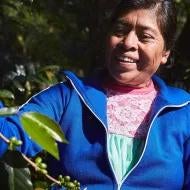Today, Pernod Ricard announced its commitment to contribute to establishing a new plastics economy, by becoming a signatory of the New Plastics Economy Global Commitment, led by the Ellen MacArthur Foundation.
The global commitment, which is part of the foundation's wider 'New Plastics Economy' initiative, was unveiled today at the Ocean Conference in Bali and has been signed by over 250 of the world's largest packaging producers, brands, retailers and recyclers.
As part of the New Plastics Economy Global Commitment, signatories are expected to report on their progress against individual pledges, with the aim to help drive momentum around creating a circular economy for plastic.
By joining the initiative, Pernod Ricard commits to deliver the following by 2025:
- Evaluating and taking measures to eliminate unnecessary plastic packaging
- Ensuring that the Group moves towards a usage rate of 100% for reusable plastic, recyclable or biodegradable packaging, according to CITEO specifications
- Implementing an eco-design handbook for the development of new products
- Integrating recycled plastics into its packaging
These commitments are in line with the United Nations' Sustainable Development Goal 12 ' 'Sustainable consumption and production' - supported by Pernod Ricard since July 2016.
The Group has already started making strong strides against plastic throughout its entire value chain, like banning non-biodegradable plastic straws and stirrers from all events worldwide.
Alexandre Ricard, Chairman & Chief Executive Officer of Pernod Ricard said; 'We are proud to be joining the New Plastics Economy with strong commitments. For us, the problem surrounding plastics isn't a new one but it feels that we have now reached a tipping point. To make a plastic-free World possible we have a collective responsibility, and it starts with businesses. Paul Ricard - my grandfather and founder of the Group - was a pioneer in his commitment to the environment and the protection of oceans, and created the Paul Ricard Oceanographic Institute back in 1966. He would be proud to see the Group join the foundation as a natural part of his legacy.'
Dame Ellen MacArthur, Founder of the Ellen MacArthur Foundation, said: 'We know that cleaning up plastics from our beaches and oceans is vital, but this does not stop the tide of plastic entering the oceans each year. We need to move upstream to the source. The New Plastics Economy Global Commitment draws a line in the sand, with businesses, governments and others around the world uniting behind a clear vision for what we need to create a circular economy for plastic. This is just one step on what will be a challenging journey, but one which can lead to huge benefits for society, the economy and the environment. I encourage all businesses and governments to go further and embark on a race to the top in the creation of a circular economy for plastic. One in which this material never becomes waste or pollution.'
About the Ellen MacArthur Foundation
The Ellen MacArthur Foundation was launched in 2010 to accelerate the transition to a circular economy. The Foundation works across key areas including insight and analysis, business and government, learning, systemic initiatives and communications.
With its Knowledge Partners (Arup, IDEO, McKinsey & Company and SYSTEMIQ), the Foundation works to quantify the economic opportunity of a more circular model and to develop approaches for capturing its value. The Foundation collaborates with its Global Partners (Danone, Google, H&M, Intesa Sanpaolo, NIKE Inc., Philips, Renault, Solvay, Unilever), Core Philanthropic Funders (SUN, MAVA, players of People's Postcode Lottery (GB)) and its CE100 network (businesses, universities, emerging innovators, governments, cities, affiliate organisations), to build capacity, explore collaboration opportunities and to develop circular business initiatives.
About the New Plastics Economy
Over the past four years, the Ellen MacArthur Foundation's New Plastics Economy initiative
has rallied businesses and governments behind a positive vision of a circular economy for plastics.
Its 2016 and 2017 New Plastics Economy reports captured worldwide headlines, revealing the financial and environmental costs of waste plastic and pollution. In the last year it has brought together 15 leading companies committed to work towards 100% reusable, recyclable, or compostable plastic packaging by 2025. The Global Commitment takes this work to the next level ' creating a global coalition of leaders with the power to prevent plastic pollution at the source.
The initiative is supported by Wendy Schmidt as Lead Philanthropic Partner, the Global Environment Facility (GEF), MAVA Foundation, Oak Foundation, and players of People's Postcode Lottery (GB)
as Philanthropic Funders. Amcor, The Coca-Cola Company, Danone, L'Ore'al, MARS, Novamont, PepsiCo, Unilever, and Veolia are the initiative's Core Partners.
Tags
On the same topic
-
Absolut Vodka and Ardagh Group co-invest in hydrogen-fired glass furnace in a global spirits industry first
Read moreAnnouncement follows a landmark partnership with Glass Futures, following the successful production of Pernod Ricard’s Jameson bottles using biofuels
-

Chivas Brothers: carbon neutral distillation by 2026
Read moreTransforming the industry through groundbreaking distillation technology at Chivas Brothers
-

Innovations in Paper Packaging
Read morePackaging is one of the most carbon-intensive activities in our value chain. That’s why Pernod Ricard has committed to ensuring that 100% of its packaging is reusable, recyclable or compostable by 2025. We are looking at ways of reducing the carbon intensity of packaging through redesign and experimenting with new materials.

























